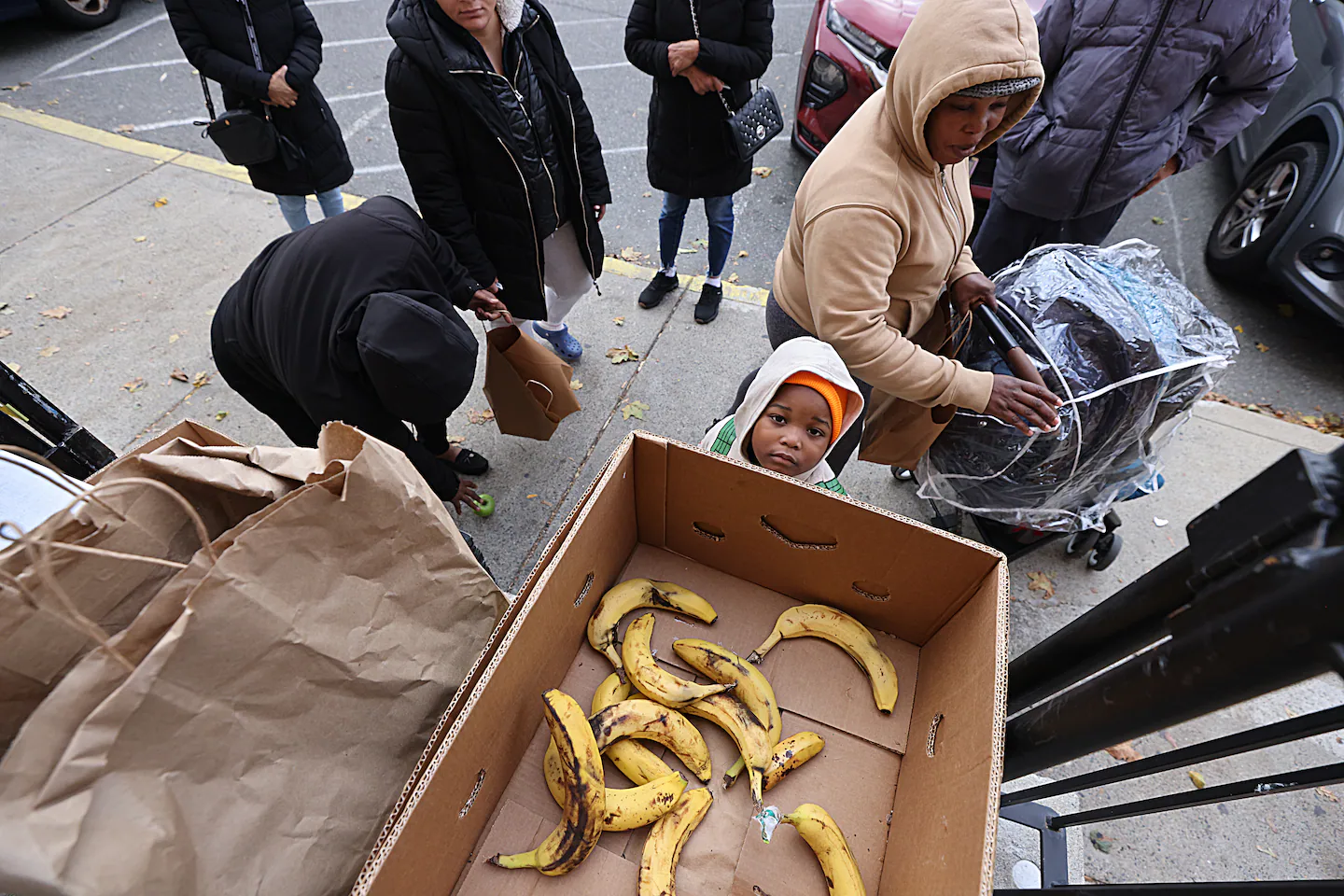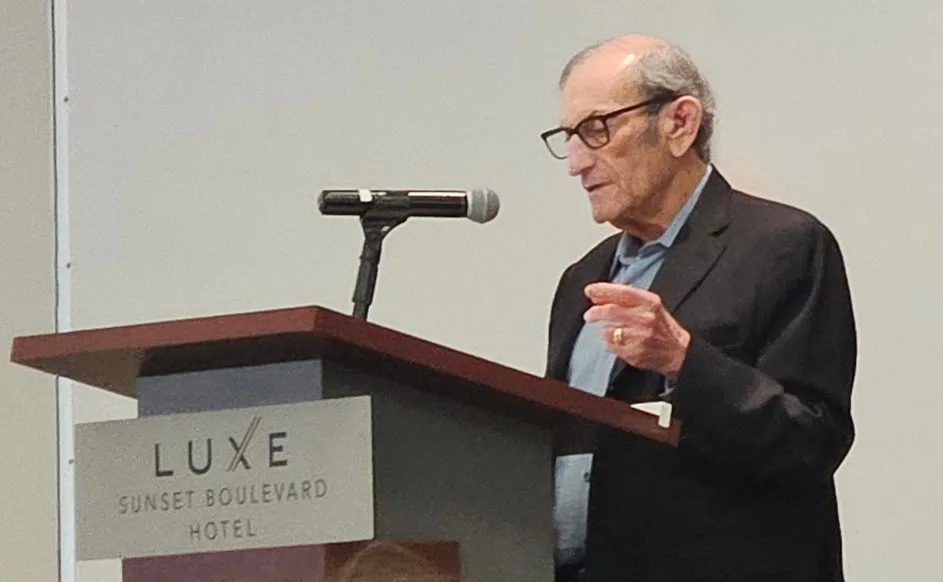Copyright The Boston Globe

Dr. Elsie Taveras, Chief Community Health and Equity Officer at Mass General Brigham, said across every group affected by the shutdown, food emerges as a common thread— from stalled SNAP benefits to strained military families and hospital staff turning to food banks — revealing how deeply interconnected these programs are when federal support stops. “We’re all worried because this shutdown exacerbated an already high rate of food-insecure households. Our Greater Boston Food Bank report showed about 67 percent of adults who are food insecure report at least one health condition,” said Taveras, a pediatrician. “When you add the newer actions like tariffs, it increases the cost of food and creates more insecurity when we already had a concerning rate.” The shutdown will persist until Senate leaders can assemble the 60 votes needed to pass a temporary funding bill — a hurdle that means at least some Democrats must back the GOP’s 53-member majority. Democrats have also introduced their own alternative proposal to reopen the government and ensure back pay for all federal workers, though neither side has yet agreed on terms. At the center of the stalemate, Democrats are pressing for a funding agreement that would extend Affordable Care Act premium tax credits, which expire Dec. 31, while Republicans are insisting on a short-term measure to reopen the government without additional provisions. A flurry of political activity is expected Monday and early in the week, following guidance from a Rhode Island federal judge ordering the Trump administration to use contingency funds to continue paying SNAP benefits during the shutdown. Here’s the latest on what we are watching develop on the ground. EBT cards were not reloaded for many residents on Nov. 1 since SNAP benefits were halted due to the government shutdown. SNAP supports one in six Massachusetts residents, or about 667,000 households, as well as local businesses and farmers. Alex Rodriguez, the commanding officer of the Salvation Army in Boston’s South End, said the organization’s food pantry typically serves about a hundred families each Friday. But last week, nearly twice that number showed up, and for the first time in three years, they ran out of supplies. “At the end, we were giving just a piece of chicken to people,” said Rodriguez, who oversees various year-round social services at the Washington Street center. “We felt so bad.” SNAP beneficiaries were feeling positive about two rulings in separate lawsuits made on Friday. Chief Judge John J. McConnell Jr. of the U.S. District Court in Rhode Island ordered the government to use contingency funds to keep SNAP benefits flowing. In the other lawsuit brought by Massachusetts and two dozen other states, federal Judge Indira Talwani in Boston indicated the plaintiffs were “likely to succeed” in their request to revive SNAP funding and directed the administration to report by the end of Monday whether it will cover at least some SNAP benefits. On Saturday, Judge McConnell instructed the government to make full payments by Monday, or partial payments by Wednesday. President Trump previously said on social media’s that he’s instructed lawyers to “ask the Court to clarify how we can legally fund SNAP as soon as possible.” Despite those rulings, policy advisors and academics said numerous questions remain, including whether the contingency funds can fully cover SNAP and what the timeline and process will be for restarting the program. They expect more clarity on these issues on Monday. Federal employees deemed essential, including military personnel, many TSA officers, and air-traffic controllers, are working without pay while the shutdown continues. The Federal Aviation Administration said Saturday that flights arriving at Logan Airport were facing average delays of about 33 minutes due to unspecified staffing issues, though the agency did not clarify which facilities or workers were affected. Mike Gayzagian, President of TSA Officers Union AFGE 2617, which represents more than 2,600 agents in all six New England states, said TSA did not get paid on Oct. 25 and people are “really nervous” about missing their second check on Nov. 7. He said issues at Boston Logan Airport could get worse if workers miss a second paycheck. “We’re on edge about,” Gayzagian said, adding the public has been “very supportive of our officers.” Their union is in the process of setting up its own food pantry behind security at their airport. “People are hurting, especially after missing rent payments and mortgages. People are stressed out,” he said. The government shutdown has stalled negotiations over renewing enhanced tax credits that have helped people afford coverage since the pandemic. Democrats in Congress are pushing to extend the credits, while Republicans say they won’t act until the government reopens. Caught in the middle are consumers shopping during annual open enrollment, which opened this weekend, facing some of the steepest premium hikes in years, with fewer federal supports to cushion the blow. Federal subsidies under the Affordable Care Act that help lower monthly insurance premiums are expiring at the end of the year, leaving the cost of next year’s coverage uncertain. Massachusetts officials have warned that if Congress fails to renew the subsidies, many residents could face premium increases of hundreds or even thousands of dollars a year. Roughly 337,000 Massachusetts residents currently receive those federal subsidies through the state’s Health Connector, the local marketplace for ACA coverage. The early childhood program Head Start is likewise under threat, impacting more than 11,000 children and 4,000 employees in Massachusetts. Massachusetts receives $189 million in annual federal funding for Head Start and Early Head Start programs provide free learning and development services to low-income families with children from birth to age five. Early Head Start programs also offer prenatal support for expectant parents. Healey and the Legislature approved $20 million for Head Start State Supplemental grants to expand access to 28 Head Start and Early Head Start programs in the state’s 2026 budget. However, 80 percent of Head Start and Early Head Start budgets are paid with federal funds. The Massachusetts Home Energy Assistance Program (HEAP) has also stopped aiding more than 150,000 households, representing over 300,000 people, who are unable to afford to heat their homes during the winter. Last year, Massachusetts was allotted $144 million by the federal government and 54 percent of households served by HEAP were seniors on a fixed income, Healey’s office said. Healey’s office said there is $13 million in federal HEAP funding remaining from last year that it will use to support households with a heating emergency in the short term while the shutdown continues. Any family experiencing a heating emergency should immediately contact their Local Administering Agency to apply for heating assistance.



